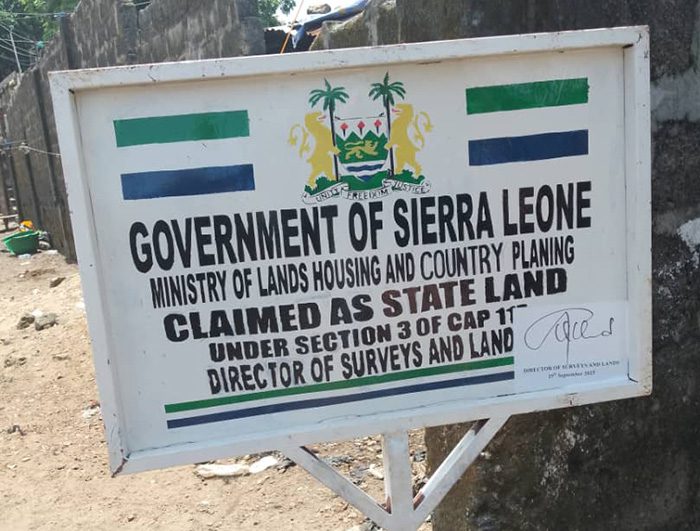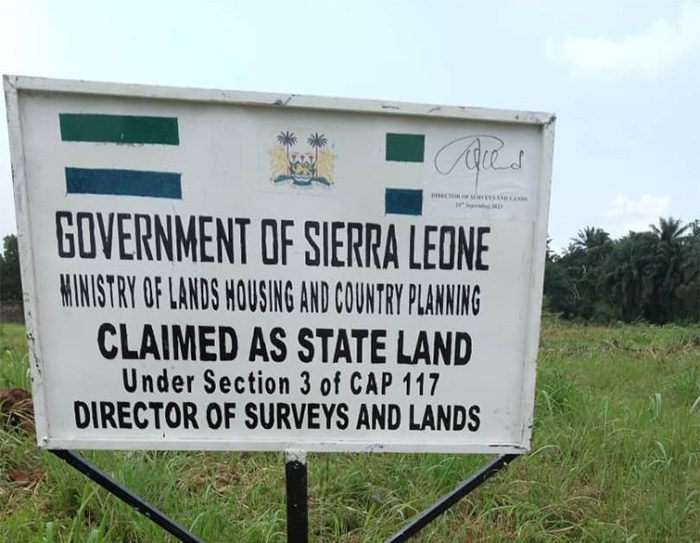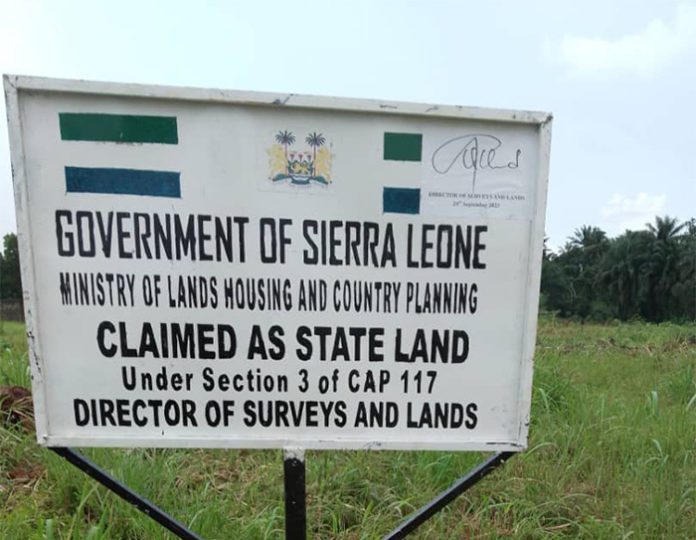
Ministry of Lands Claims State Land in Sierra Leone: Legal Procedures and Implications
Introduction:
In Sierra Leone, the Ministry of Lands, Housing, and Country Planning recently announced a significant development on September 29th, 2023. They claimed a portion of land at Government Wharf and another 8.5468 acres at Four Steps along the Masiaka Highway as State Land. They executed this action under section 3 of CAP 117, known as the Unoccupied Lands Act. This comprehensive report delves into the details of this announcement, providing an in-depth analysis of the legal procedures, the definition of unoccupied land, and the potential implications of this land claim.
Legal Foundation: Unoccupied Lands Act, Cap 117
The Ministry’s decision to claim this land is grounded in the Unoccupied Lands Act, Cap 117, which delineates the legal framework for such actions. According to this act, the Director of Surveys and Lands is authorized to declare land as unoccupied. This entails marking out the land and posting a notice of claim signed and dated by the Director, designating it as “Claimed as Crown Land.” This is the pivotal initial step in the process of land claim.

Defining Unoccupied Land: Section 4 Exceptions
To determine land as unoccupied, the Unoccupied Lands Act, Cap 117, enumerates specific exceptions applicable within the Western Area. These exceptions encompass:
- Proof of habitation for 12 years following the ordinance.
- Proof of vegetation for 12 years following the ordinance.
- Storing and collecting water for 12 years following the ordinance.
- Proof of operating industries for 12 years following the ordinance.
- Possession of land instruments or registers over a period of not less than twelve years preceding the commencement of this ordinance.
- Land that is part of specifically registered town lots and country lots.
- Land cultivated with economically valuable trees like banana, coffee, cocoa, gum, kola, or plantain trees.
Claim Procedures:
The land claim process, as outlined in the Unoccupied Lands Act, follows a series of well-defined steps:
- Section 3: The Director of Surveys and Lands marks the land as unoccupied and posts the notice.
- Section 5: Within six months of notice erection, all individuals asserting claims to the land must submit written notices to the Director of Surveys and Lands, specifying the boundaries and extent of their claims.
- Section 6: The court may order the issuance of a state grant if it determines that the land is not unoccupied, i.e., it is occupied.
- Section 10: If the land remains unclaimed within the six-month period, it is automatically deemed state land.
Implications and Policy Clarifications:
It is necessary for the public to understand the importance of adhering to the Unoccupied Lands Act’s policies and procedures, as emphasized by the Ministry of Lands, Housing, and Country Planning. Policies establish rules and guidelines for both the Ministry and its employees, outlining what they should do and why they should do it. Procedures complement policies by providing step-by-step instructions on how these policies are executed. The Ministry’s strict adherence to these policies and procedures ensures transparency and accountability in land claims, ultimately safeguarding the public interest.

Conclusion:
The Ministry’s recent claim of state land in Government Wharf and Four Steps along the Masiaka Highway is a significant development within Sierra Leone’s legal framework. This report has provided a comprehensive analysis of the legal foundation, the definition of unoccupied land, claim procedures, and the critical importance of adhering to policies and procedures in land management. A thorough understanding of these aspects is vital for the public and stakeholders, as it guarantees a fair, transparent, and just process in land ownership and management within Sierra Leone. Please refer to the Ministry of Lands and Country Planning for more information and other specific rules governing Sierra Leone’s Land Tenure System.

